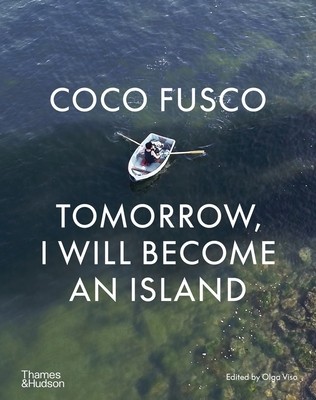
- We will send in 10–14 business days.
- Publisher: Thames & Hudson
- ISBN-10: 0500024928
- ISBN-13: 9780500024928
- Format: 21.8 x 27.7 x 2.5 cm, hardcover
- Language: English
- SAVE -10% with code: EXTRA
Coco Fusco (e-book) (used book) | bookbook.eu
Reviews
Description
Tomorrow, I Will Become an Island is the first in-depth study of the performances, videos, and social practice of the influential Cuban-American artist Coco Fusco. The book will accompany an international touring retrospective of the artist's work starting in 2023. Featuring contributions by renowned scholars of art history, performance art, and Cuban cultural politics, this monograph offers a comprehensive review of Fusco's interdisciplinary art practice and her transnational perspective on race, gender, and power.
Fusco has been a leader in conversations around the intersection of identity, feminism, culture, and politics in the Americas and beyond. Emerging during the 1980s as a pioneering advocate of multiculturalism in the arts, Fusco utilizes performance, video, archival research, and writing to reflect upon the ways that intercultural relations and colonial histories shape the construction of the self and perceptions of cultural difference. Her work critically examines society from a postcolonial perspective, engaging with debates about cultural politics throughout the Americas, Europe, and elsewhere. This expansive approach is highlighted through a broad range of works that address themes including postrevolutionary Cuba, racial stereotypes, feminist politics, ethnographic displays, military interrogation, and sex tourism.
EXTRA 10 % discount with code: EXTRA
The promotion ends in 18d.02:22:43
The discount code is valid when purchasing from 10 €. Discounts do not stack.
- Publisher: Thames & Hudson
- ISBN-10: 0500024928
- ISBN-13: 9780500024928
- Format: 21.8 x 27.7 x 2.5 cm, hardcover
- Language: English English
Tomorrow, I Will Become an Island is the first in-depth study of the performances, videos, and social practice of the influential Cuban-American artist Coco Fusco. The book will accompany an international touring retrospective of the artist's work starting in 2023. Featuring contributions by renowned scholars of art history, performance art, and Cuban cultural politics, this monograph offers a comprehensive review of Fusco's interdisciplinary art practice and her transnational perspective on race, gender, and power.
Fusco has been a leader in conversations around the intersection of identity, feminism, culture, and politics in the Americas and beyond. Emerging during the 1980s as a pioneering advocate of multiculturalism in the arts, Fusco utilizes performance, video, archival research, and writing to reflect upon the ways that intercultural relations and colonial histories shape the construction of the self and perceptions of cultural difference. Her work critically examines society from a postcolonial perspective, engaging with debates about cultural politics throughout the Americas, Europe, and elsewhere. This expansive approach is highlighted through a broad range of works that address themes including postrevolutionary Cuba, racial stereotypes, feminist politics, ethnographic displays, military interrogation, and sex tourism.


Reviews